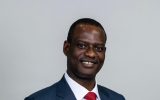by Tunde Leye
Africa is in dire need of leaders with strong, clear ideologies. As has been shown by experience in Africa, at the point of birthing a nation, the most important factors are the presence of a strong leader with a clear ideology and sense of how they want to run the country, and very importantly, that these leaders survive for long enough to achieve these aims. The critical icing on the cake is where these leaders are able to fight the temptation to fall into the ethnic-centric cage that has imprisoned some of the greatest minds this continent has produced. The countries that have been fortunate enough to have it this way have gone on to come out strong even within the African continent.
Take for example Botswana. Seretse Khama was very clear on how he wanted Botswana to emerge as a nation. In fact, he broke away from the tradition of the royal family he belonged to in order to embrace a more modernized outlook to being Botswanan. He oversaw the fastest growing economy in the world during his reign from 1966 to 1980. Today, it is one of the few African countries which has never had a coup d’état and the quality of life there has been compared to advanced Asian countries like South Korea. The South Africans were also fortunate enough to have Madiba who embodied these three things live for long enough to steer the country as the first post-apartheid president onto a path of prosperity and as one of the few self-sufficient African states.
Other states were not that lucky. In present day Democratic Republic of Congo, the great thinker that rose among the people was a gentleman called Patrice Lumumba. But in collusion with the west, a vile usurper in the person of Mobutu Seseseko had him killed and set the country back such that today, in spite of vast natural resources, it remains one of the poorest countries in the world. Congo had their detribalized leader, but he didn’t live long enough to birth the Congo that could have been great. Burkinafaso had Thomas Sankara. Sankara turned Burkinafaso around during his rule, but the west could not stomach his Marxism, about which he was unapologetic. Again, a willing conspirator was found in Sankara’s erstwhile Ally, Blaise Campaore, and he was murdered in his prime, before his vision for Burkinafaso fully materialized. Today, Burkinafaso has never really achieved any of the greatness it showed a potential for under Sankara, living in the shadow of Ivory Coast. The final example I will give of an African country who lost the leader that could have made it happen to death is Amilcar Cabral of Guinea Bissau. He was killed before by the Portuguese before his country achieve independence and his brother Luis who became president at independence couldn’t make the country into the dream and a coup ensued and then a civil war.
Other countries had their greatness truncated by the leaders succumbing to ethnicity or grandeurs of delusion. These are countries like Ghana and Kenya where Nkrumah and Kenyetta fell under the spell of their own greatness and nearly destroyed their own good work. However, even these second groups are better off than the third set of African countries.
These are those countries where the men with clear ideologies never emerged as leaders, or where they did, ethnicity had already eaten deep into them. It is into this category that our Nigeria falls. Pre-independence, the only Nigerian leader that articulated clearly how Nigeria should run as a federation was Awolowo, in his 1947 book, Path to Nigerian Freedom. But Awolowo, along with all the other Nigerian pre-independence leaders fell under the ethnicity spell and by 1960 at independence, no strong ideology beyond grabbing power for your own people was needed by politicians to win elections.
Therefore, politicians were not interested in doing the hard thinking necessary to develop the nation economically, socially and culturally. It was not necessary to articulate your thoughts on how you would run the country to win an election. You simply had to form the right alliances and appeal to the basest of sensibilities and you would get into power. And once entrenched in power, you fought to hold on with both hands, especially after the free money from oil began to flow.
Unfortunately for us, the strong leader who stays long enough to make potential happen phase is only possible at the point of birthing nations. So the truth must be told. We have missed that window. We will have to do this in the much harder way where no matter how strong a leader is, he or she must operate within the boundaries set by the limits on term. But the critical centrepiece of this is still leadership, and it is in this that the failure is abysmal.
Today, we are a nation that has little or no control over how much it earns, subject to the whims and caprices of those that determine the global oil prices. We do not take advantage of our advantages of population, of the geographical advantage of being the critical centrepiece that links West, Central and North Africa to dominate trade and many others. We have only one real port city for international trade, in spite of being blessed with numerous towns where ports can be developed.
The critical questions any of the men now jostling for power in 2015 are not many, but they are important. First, they must articulate, in as clear terms as Awolowo did, how they will run this federation. They must tell us in a clear and concise manner how they want to begin to harness all our advantages to move us from the point of near total dependence on oil for revenues to a country with a well-diversified revenue base. They must tell us how they plan to move us towards food sufficiency. They must tell us what their plans are for proper identification of Nigerians. They must tell us how they will make us safe and secure. Not just the babble about their experience and their pedigree and all the things we hear politicians bandy about.
—————–
Tunde Leye is an accomplished writer. His book ‘Guardian of the seals’ will be out soon
Op-ed pieces and contributions are the opinions of the writers only and do not represent the opinions of Y!/YNaija.















